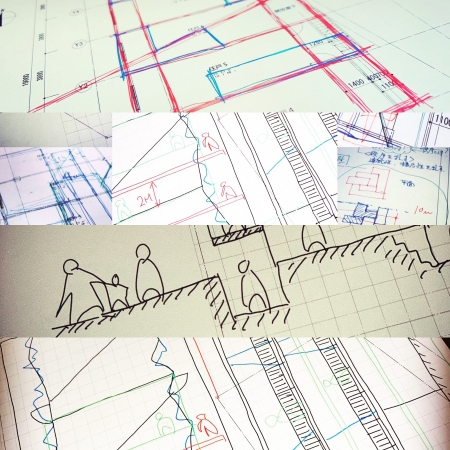「分かっていないこと」が分からない
「分かっていること」と「分かっていないこと」を書き出してメモしてみると、「分かっていないこと」がほとんど出てこない。「分かっていること」を「分かること」、「分かっていないこと」を「分からないこと」と変えても同じ、「分かっていないこと」が何かが分からないのだ。
スタート地点に戻した、今計画中のプロジェクトの話。
「本来どうあるべきか」をもう一度問い直してみようと、着想の記憶に立ち返り、収集した情報をもう一度見返し、読み返し、もう一度自分なりの言葉でメモをしているのだが、「分かっていないこと」がほとんど出てこないということは、別の見方をすると、今計画中のプロジェクトに新しさがほとんど無いということで、既存の、今ある考えを組み合わせているに過ぎないということ。
だから、計画中のプロジェクトに対して、しっくりきておらず、何かが違う、何かが足りない、と思うのだろう。
「分かっていないこと」を明確に意識して分かるためにはどうするか、もう少し収集した情報を読み込んでみるしかないのか。
「分かっていないこと」が分かり、それを解くことにより、計画中のプロジェクトに新しさが加わり、それでどうかを見たいところだが。
"I do not know what I do not understand"
When I write out and write down "I know" and "I don't know", I hardly see "I don't understand." If you change "understood" to "understood" or "ununderstood" to "ununderstood", you do not understand something the same as "ununderstood".
The story of the project currently being planned that has returned to the starting point.
I'm going back to the idea's memory, looking back at the information I've collected, reading it back and making notes in my own words, but I'm "I don't know." The fact that it hardly comes out means, from another point of view, that the project being planned is hardly new, so it is merely combining existing ideas.
So for the project you are planning, you think that something is not right, something is different, something is missing.
What can you do to clearly and consciously understand what you do not understand, or do you have to read in a little more collected information?
You know what you don't know, and solving it adds newness to the project you're planning, and that's where you want to see.

